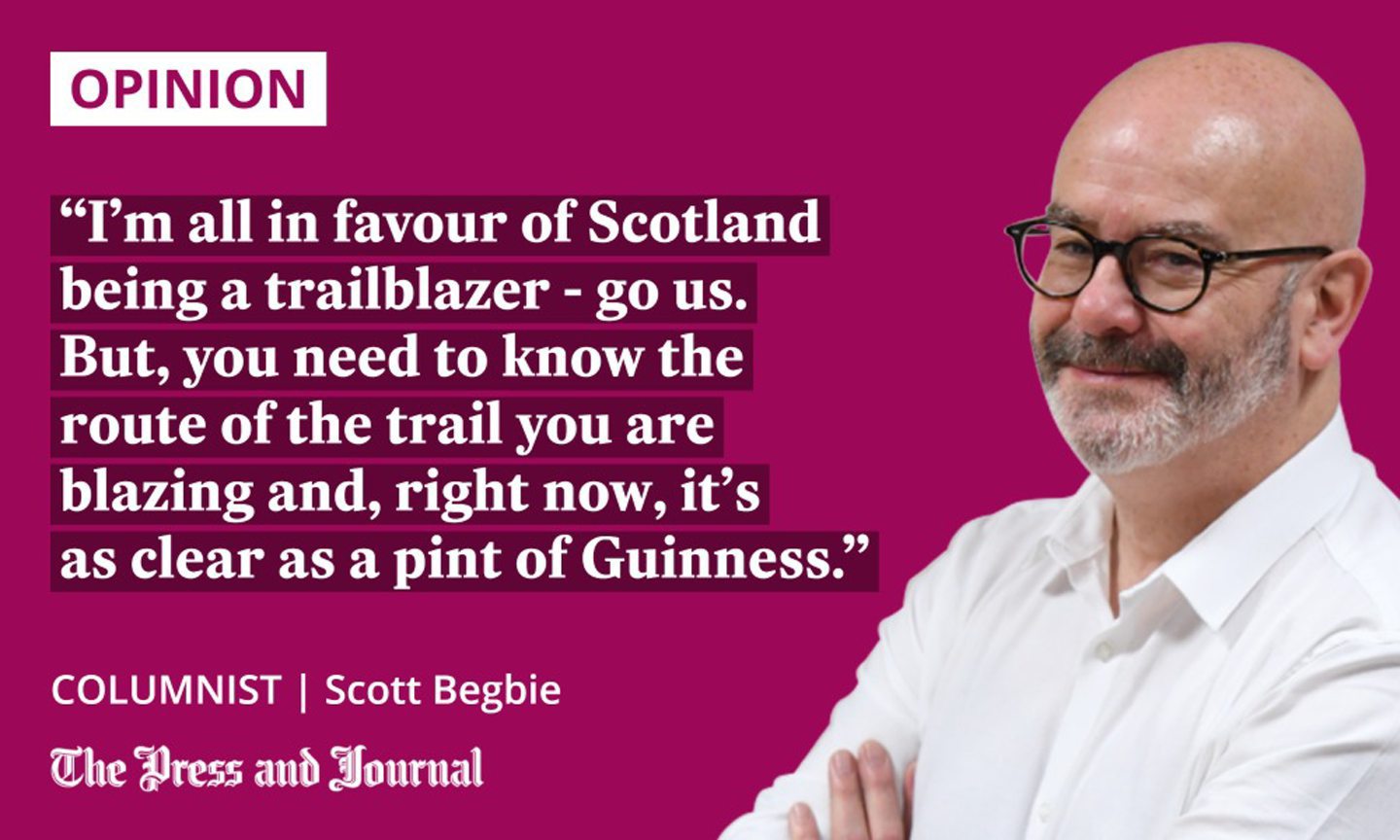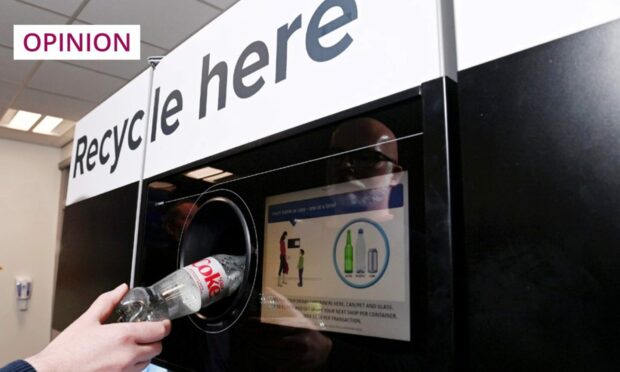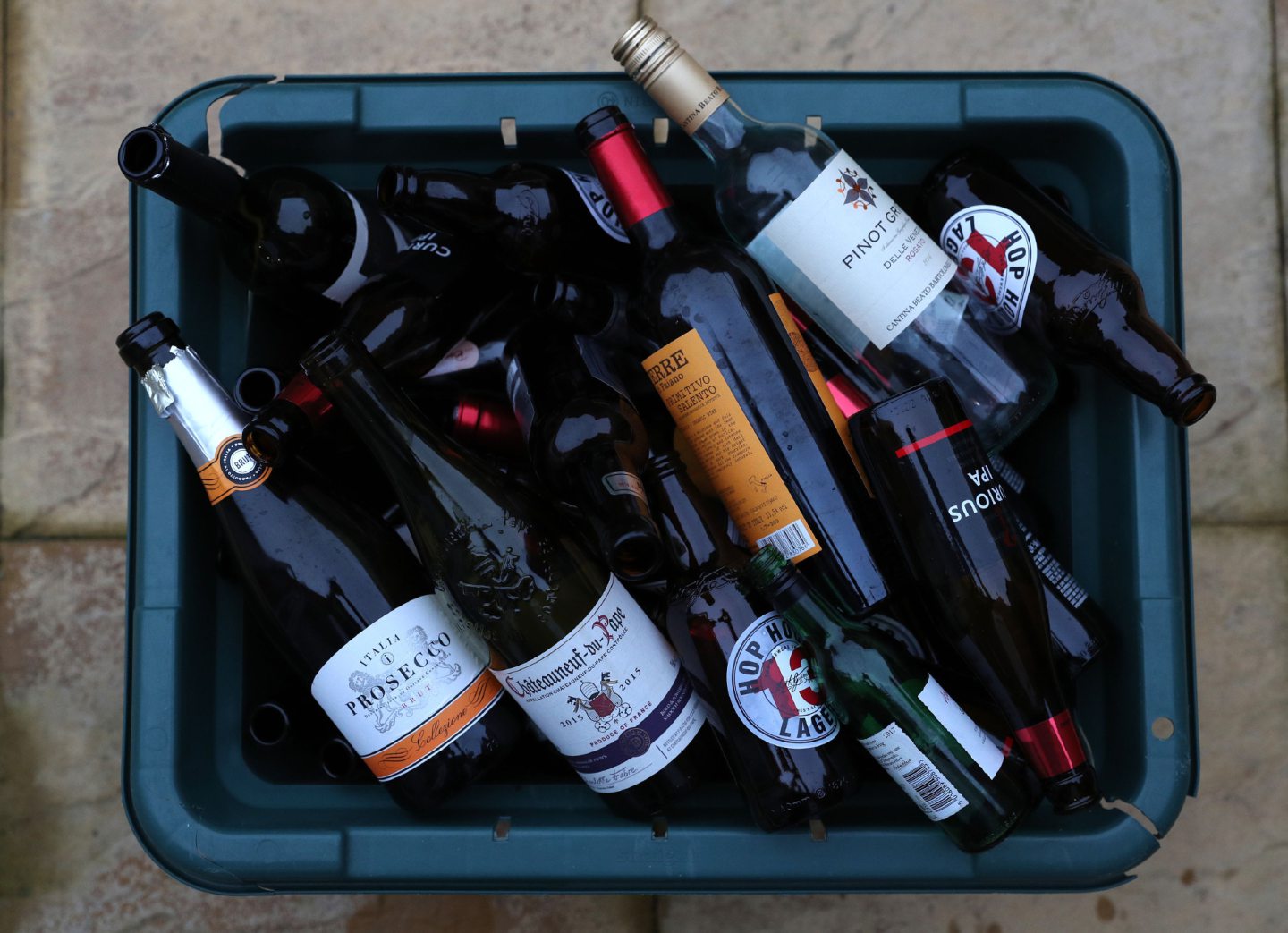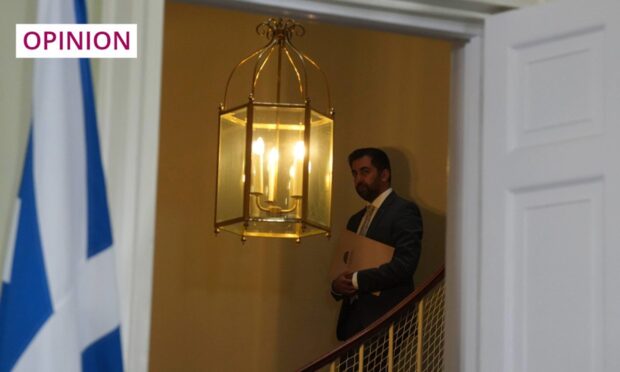Right now, the detail of the deposit return scheme is so muddied and muddled, companies have no idea what they’re signing up for, writes Scott Begbie.
Sometimes the best way to recycle a bit of waste is not to use it in the first place… And, yes, I am looking at the half-baked deposit return scheme about to be inflicted on Scotland.
I refer to the plan to put a 20p deposit on single-use drinks bottles and cans, to make sure we do our recycling duty. Which, in principle, is perfectly fine. After all, I’m of a vintage where I remember getting a few pence back for returning Irn-Bru bottles, in the dim and distant past.
So, money back on empty bottles and cans is not an alien or unacceptable concept. It’s a good one.
Where the planned new deposit return scheme (DRS) goes wrong – and spectacularly so – is in the way it is being railroaded through, when the drinks industry is warning it will be a catastrophe for them in terms of cost and red tape.

Every outlet selling a single-use can or bottle has to slap 20p onto the cost of it. They will then need to have the means to take back said containers and hand back the 20p deposit to customers, then arrange for the empties to be collected for recycling.
Gosh, not much paperwork or extra work or storage space involved in that then, he said, looking around his small, friendly neighbourhood corner shop, wondering how they can have the room and time for all that.
Let’s put the plan on ice until issues are ironed out
The devil is, as always, in the detail. But in the case of the DRS, the detail is so muddied and muddled, retailers have no clear idea of what sort of commitment they are signing up for.
Which is a pity, since they need to be signed up by the end of this month for a scheme that will start in August. And, if you’re not in, you won’t be selling any bottles or cans. Just great for a sector that is still trying to get back on its feet after the ravages of Covid.
No wonder the drinks industry is warning of disrupted trade, raised prices and reduced choice – especially as a similar scheme in the rest of the UK won’t be in place until 2025.
Now, I’m all in favour of Scotland being a trailblazer – go us. But, you need to know the route of the trail you are blazing and, right now, it’s as clear as a pint of Guinness.
So much so, that the Scottish Government’s own review of DRS in December last year said there were issues yet to be resolved, and that a “fully functioning scheme cannot be in operation by August”.
Even SNP stalwart MSP Fergus Ewing said the plan should be paused. Note the word. Paused. Not binned, but put on ice until issues are ironed out, and maybe even tie in with a UK launch, which would avoid the instant trade barrier of companies having to charge more in Scotland than in England.
In other words, let’s recycle the laudable idea of a deposit return scheme at a time when it won’t damage an already struggling industry.
Scott Begbie is a long-time journalist and editor for The Press & Journal and Evening Express












Conversation